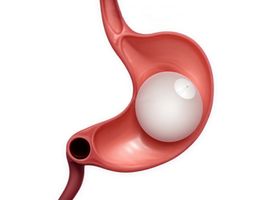Gastric Plication in Daejeon
Search and Compare the Best Clinics and Doctors at the Lowest Prices for Gastric Plication in Daejeon




































































































































No Time?
Tell us what you're looking for and we'll reach out to the top clinics all at once
What does Gastric Plication Procedure Involve?
Gastric Plication is an innovative surgical procedure designed to aid in significant weight loss. This operation entails a minimally invasive technique performed under general anaesthesia. The operation starts with the surgeon making several tiny incisions in the patient's abdomen. The surgeon then introduces a laparoscope complete with a camera and other required surgical instruments via these cuts.
Once inside, the surgeon embarks on the primary objective; folding the larger curve of the stomach inwards and sewing it to secure the reduced size. Unlike other similar weight loss surgeries such as Gastric Bypass or Gastric Sleeve, Gastric Plication is unique as it does not involve the removal of any portion of the stomach or the digestive tract. Post-operation, the patient is typically required to remain in the hospital for the next one to two days for observation and medical care.
How Long Should I Stay in Daejeon for a Gastric Plication Procedure?
Planning your stay in Daejeon for a Gastric Plication surgery goes beyond the operation and aftercare in the hospital. While the surgery itself demands a stay of approximately one to two days for nursing and monitoring, a complete stay of around a week to ten days should be taken into account.
This time frame gives allowance for preoperative tasks such as consultations and diagnostic tests, the surgery itself, and the immediate recovery period post-surgery. Planning for a follow-up examination after the surgery before leaving Daejeon is equally vital to ensure recovery is advancing as projected. Nevertheless, the proposed stay might vary based on individual recovery timelines and unforeseen complications.
What's the Recovery Time for Gastric Plication Procedures in Daejeon?
The process of recovery after a gastric plication procedure can vary widely, depending largely on an individual's overall health, age, and fidelity to post-procedure dietary modifications and physical activity guidelines. Generally speaking, many individuals find that they are able to return to their daily routines within about a week after surgery. That said, a full recovery - which involves complete healing post-surgery - is typically a matter of two to three weeks.
What's critical to understand here is, that the aforementioned recovery timeline majorly pertains to the physical aspect of recuperation after the operation. Adjusting to the subsequent diet-related and lifestyle shifts, which are key to ensuring long-term successful weight loss, might entail a somewhat extended timeframe. In places like Daejeon, patients have access to dietitians and counsellors who are trained to guide them during this important transition phase. These professionals offer insightful advice on making nutritious food choices, practising portion control, and developing healthy lifestyle habits, all of which are integral to retaining the weight loss achieved from the surgical procedure.
What sort of Aftercare is Required for Gastric Plication Procedures in Daejeon?
After undergoing gastric plication in Daejeon, the focus shifts toward comprehensive and meticulous post-procedure care. This care regimen is instrumental in ensuring the success of the procedure and involves significant lifestyle adjustments. Specific elements of this adjustment include adhering to a structured dietary program, incorporating suitable levels of physical activities, and attending scheduled follow-up consultations with healthcare providers.
Post-procedure, dietary modifications usually commence with a liquid diet which is systematically expanded over time to incorporate soft foods and finally reintroduce solid, well-balanced meals. Regularly scheduled physical activity aids not only in enhancing the surgical weight loss results but also boosts overall physical fitness and mental well-being. Periodical check-ups post-procedure are also paramount and help to track the recovery progress, make necessary amendments to the patient's diet, manage any potential complications swiftly and provide continuous psychological support. It's crucial to remember that while gastric plication can jumpstart the weight loss journey, the sustainability of the weight loss largely depends on the individual's commitment to long-term lifestyle changes.
What's the Success Rate of Gastric Plication Procedures in Daejeon?
The success rate of gastric plication in Daejeon appears to be promising with a substantial number of patients noticing significant weight loss and a remarkable reduction in obesity-associated health conditions. Nevertheless, it's important to remember that this surgical intervention isn't an absolute cure or quick solution for obesity, but rather an effective tool that when paired with commitment to lifestyle modifications, could lead to enduring weight loss and improved quality of life.
Patients who keep up with suggested diet and exercise regimens, regularly attend follow-ups, and accommodate other relevant lifestyle changes are known to experience significant weight reduction and improvement in their health. However, like with any procedure, there can be instances of less-than-ideal outcomes with certain patients not achieving their weight loss targets or the possibility of weight regain over time.
Are there Alternatives to Gastric Plication Procedures in Daejeon?
• Gastric bypass surgery (Roux-en-Y gastric bypass) – In this extensively studied procedure, a small pouch is crafted out of the stomach's top section and directly linked to the small intestine, effectively bypassing parts of the digestive tract. This dual-action surgery not only curbs food intake but also cuts down on nutrient absorption.
• Gastric Sleeve surgery - Also known as sleeve gastrectomy, this process entails removing around 80% of your stomach. The leftover portion is a narrow, sleeve-like tube. This surgery not only restricts the volume of food intake but also manipulates the production of hunger hormones, often reducing the sensation of hunger.
• Adjustable gastric banding – This less-invasive, reversible option involves placing an inflatable band around the upper section of the stomach. The procedure results in a small pouch being created above the band, while the rest of the stomach remains below it. This physical alteration limits the stomach's capacity to hold food at once, thus helping manage intake.
It's important to understand that while each of these alternatives has its pros, a detailed, transparent discussion with your healthcare provider is the best way to decide which method is most suitable concerning your specific physical condition, weight loss objectives, and lifestyle. Irrespective of the selected procedure, personalised care, continual monitoring, and a strong commitment from the patient's end are critical ingredients for successful outcomes following any weight loss surgery.
This information has been accurately sourced and verified by a medical professional for its accuracy, however, we strongly recommend you to consult with your doctor before pursuing medical procedures overseas.








